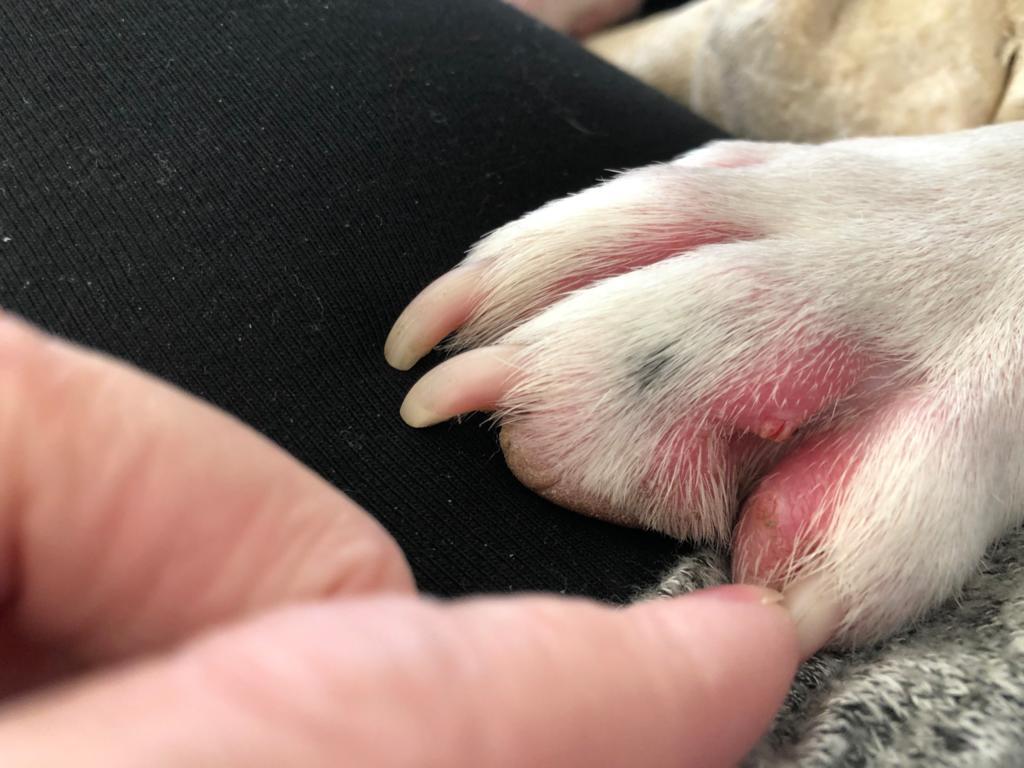Urinary stones dogs merck vet
Urinary Stones Dogs Merck Vet. Calcium phosphate silica carbonate xanthine and drugs or their metabolites. Urinary stones can form in the kidneys. Urinary stones composed of calcium oxalate CaOx are common in dogs. If one stone is located it is important to examine the entire urinary tract to look for others.
 Urolithiasis In Small Animals Urinary System Msd Veterinary Manual From msdvetmanual.com
Urolithiasis In Small Animals Urinary System Msd Veterinary Manual From msdvetmanual.com
The only way to be sure that a bladder stone is. Bovine cystitis is an inflammation of the urinary bladder of cattle that may ascend the ureters to cause infection of the kidneys pyelonephritis. Stones in the urethra may also be detected during a rectal examination or when attempting to insert a catheter. For example the Miniature Schnauzer and Bichon Frise have greater than 20 times the risk of developing CaOx stones compared to mixed breed dogs. Cystine bladder stones appear to be the result of a genetic abnormality that prevents a dog from reabsorbing cystine from the kidneys. The formation of bladder stones calculi is associated with precipitation and crystal formation of a variety of minerals.
Urolithiasis refers to the presence of stones anywhere in the urinary tract.
Blastomycosis is a Systemic Fungal infection Affecting Dogs and Cats. Urethrostomy occurs more often in male dogs but can also be performed on females when their urethra becomes blocked through trauma stones or other conditions. Bladder stones can develop within a few weeks or they may take months to form. Bladder stones otherwise known as cystic calculi are a collection of minerals ranging in size and composition that develop in a dogs bladder and can cause frequent urinary tract infections pain and obstruction of the urinary tract. In dogs the two most common types of bladder stones in dogs are struvite stones and calcium oxalate stones. When an obstruction is caused by urinary tract calculi stones the veterinarian will attempt to flush the stones back into the bladder.
 Source: msdvetmanual.com
Source: msdvetmanual.com
In some dogs struvite formation occurs in the absence of urinary tract infections ies terile struvite stones. Other commonly affected breeds include the Shih Tzu. Obstructive urolithiasis is a significant cause of morbidity and mortality in male ruminants. There may be many stones present at once. From developing new therapies that treat and prevent disease to helping people in need we are committed to improving health and well-being around the world.

Bladder stones are rock-like formations of minerals that develop in the urinary bladder. Urolithiasis means urine stones. When an obstruction is caused by urinary tract calculi stones the veterinarian will attempt to flush the stones back into the bladder. In turn these problems can cause painful urination blood in the urine and slow or painful urination. If one stone is located it is important to examine the entire urinary tract to look for others.
 Source: msdvetmanual.com
Source: msdvetmanual.com
Urolithiasis refers to the presence of stones anywhere in the urinary tract. Urolithiasis refers to the presence of stones anywhere in the urinary tract. There may be many stones present at once. If one stone is located it is important to examine the entire urinary tract to look for others. Stones in the urethra may also be detected during a rectal examination or when attempting to insert a catheter.
 Source: msdvetmanual.com
Source: msdvetmanual.com
Cystine bladder stones appear to be the result of a genetic abnormality that prevents a dog from reabsorbing cystine from the kidneys. Therefore culture urine prior to antimicrobic administration to accurately classify and effectively manage uroliths. Dogs with crystals or very small stones in the urinary system do not usually have any signs. When an obstruction is caused by urinary tract calculi stones the veterinarian will attempt to flush the stones back into the bladder. Bloody Nose Epistaxis in Dogs and Cats.
 Source: msdvetmanual.com
Source: msdvetmanual.com
Bloat - The Mother of All Emergencies. Perineal urethrostomy is a surgical procedure used in dogs to treat urinary blockage. Bones are Unsafe for Your Dog No Bones about It. Urethrostomy occurs more often in male dogs but can also be performed on females when their urethra becomes blocked through trauma stones or other conditions. Bladder stones otherwise known as cystic calculi are a collection of minerals ranging in size and composition that develop in a dogs bladder and can cause frequent urinary tract infections pain and obstruction of the urinary tract.
 Source: merckvetmanual.com
Source: merckvetmanual.com
From developing new therapies that treat and prevent disease to helping people in need we are committed to improving health and well-being around the world. The acidity of the urine plays a role in the formation of stones this can be influenced by the presence of a bacterial infection or less commonly by an inappropriate diet. However larger stones in the lower urinary tract may interfere with urination or irritate the lining of the bladder or urethra. Other commonly affected breeds include the Shih Tzu. What causes bladder stones in dogs.
 Source: msdvetmanual.com
Source: msdvetmanual.com
Bones are Unsafe for Your Dog No Bones about It. Bladder stones are formed when there is an over-saturation of minerals with or without other underlying issues such as a urinary tract infection within the bladder. Bladder stones form when minerals in urine clump together into a mineralized mass veterinarians call this a urolith. Urinary tract infection by urease-producing bacteria is the underlying cause of most canine struvite stones. The Merck Veterinary Manual was first published in 1955 as a service to the community.
 Source: msdvetmanual.com
Source: msdvetmanual.com
Obstructive urolithiasis is a significant cause of morbidity and mortality in male ruminants. Cystine bladder stones appear to be the result of a genetic abnormality that prevents a dog from reabsorbing cystine from the kidneys. Bladder stones can develop within a few weeks or they may take months to form. Most canine uroliths are found in the lower urinary tract. Urethrostomy occurs more often in male dogs but can also be performed on females when their urethra becomes blocked through trauma stones or other conditions.
 Source: msdvetmanual.com
Source: msdvetmanual.com
Urinary stones can form in the kidneys. Bones are Unsafe for Your Dog No Bones about It. However larger stones in the lower urinary tract may interfere with urination or irritate the lining of the bladder or urethra. What causes bladder stones in dogs. Bloody Nose Epistaxis in Dogs and Cats.
 Source: msdvetmanual.com
Source: msdvetmanual.com
Via a paramedian incision the apex of the urinary bladder is brought to the body wall and a. If one stone is located it is important to examine the entire urinary tract to look for others. Dogs with crystals or very small stones in the urinary system do not usually have any signs. Urinary stones are formed in your dogs urinary tract when mineral crystals in the urine bind to form large stones. Bovine cystitis is an inflammation of the urinary bladder of cattle that may ascend the ureters to cause infection of the kidneys pyelonephritis.

Bladder stones otherwise known as cystic calculi are a collection of minerals ranging in size and composition that develop in a dogs bladder and can cause frequent urinary tract infections pain and obstruction of the urinary tract. In some dogs struvite formation occurs in the absence of urinary tract infections ies terile struvite stones. Uroliths form from protein and mineral components of the diet. Urinary stones are formed in your dogs urinary tract when mineral crystals in the urine bind to form large stones. Current research indicates that urine high in calcium citrates or oxalates and is acidic predisposes a pet to developing calcium oxalate urinary crystals and stones.
 Source: msdvetmanual.com
Source: msdvetmanual.com
This is the first thing we think of because it is the most common site in humans. However dogs with bladder stones may not show obvious clinical signs. Urinary stones can form in the kidneys. Urinary stones are formed in your dogs urinary tract when mineral crystals in the urine bind to form large stones. Your veterinarian may be able to palpate the stones or may need to perform imaging studies such as a bladder ultrasound or a contrast radiographic study.
If you find this site convienient, please support us by sharing this posts to your own social media accounts like Facebook, Instagram and so on or you can also bookmark this blog page with the title urinary stones dogs merck vet by using Ctrl + D for devices a laptop with a Windows operating system or Command + D for laptops with an Apple operating system. If you use a smartphone, you can also use the drawer menu of the browser you are using. Whether it’s a Windows, Mac, iOS or Android operating system, you will still be able to bookmark this website.





